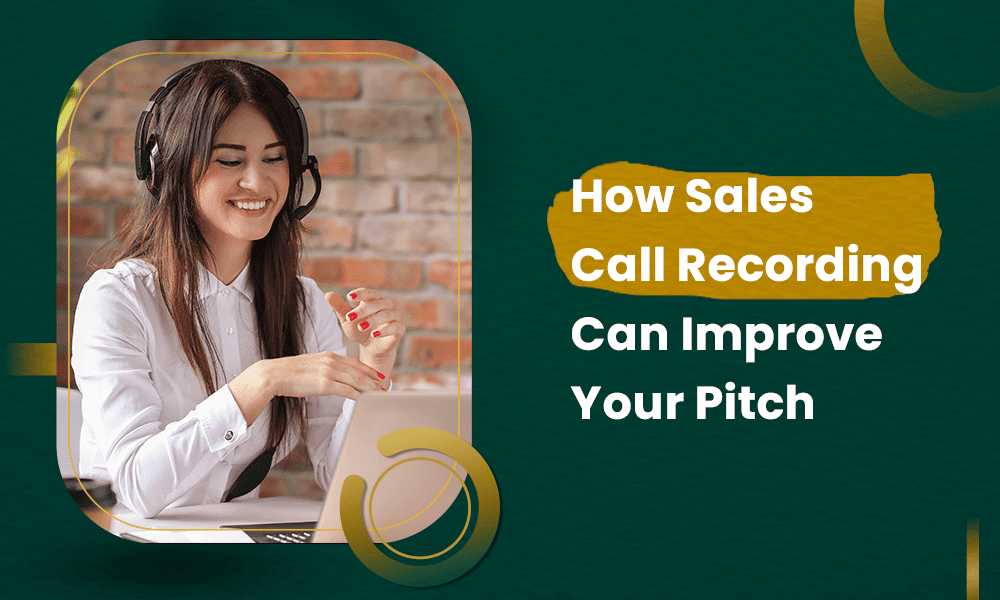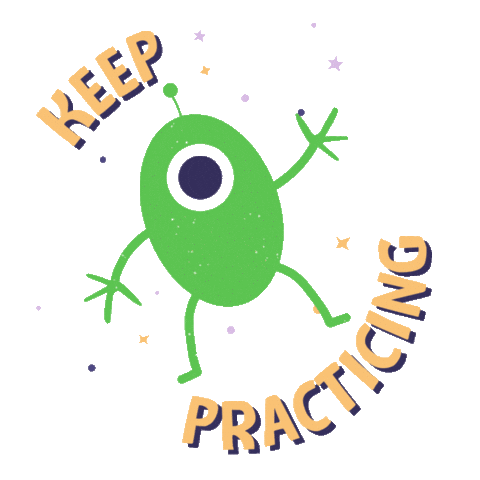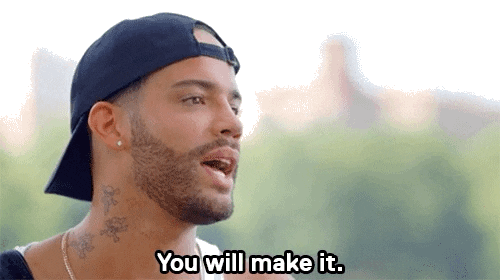Sales call recordings are a game changer for your business. Yes, you heard that right. If this statement left you scratching your head, no worries! We’ve got you covered in this article.
For the salesperson, there’s no better way of knowing whether or not you’re on the right track with a potential customer than hearing for yourself what your prospects are saying about your company.
The only problem is that most companies don’t have a formal system in place for recording their sales calls. Instead, they rely on notes taken during the call or recollections of what was said.
What happens if something gets lost in translation? If someone forgets something important? Or if someone misheard and misunderstood? With such an unreliable method, it’s easy to see why so many deals fall through at the last minute.
This is where sales call recording comes into the picture.
Table of Contents
Why is Sales Call Recording Important?
Sales call recording can be an invaluable tool in your sales arsenal.
It can help you create memorable interactions with your prospects, and it increases the likelihood of closing deals.
Recording your sales calls also helps streamline your sales process overall.
Best Practices for Recording Sales Calls
Don’t be surprised if your first try at recording a sales call is not perfect.
Recordings are best used as an evaluative tool, not a performance review. It’s also important to get buy-in from the prospect before you start recording. If they feel like they’re being recorded, it can put them on guard and make them less likely to open up about their needs.
So, make sure to let them know that this isn’t for judging their product knowledge, but for capturing insights into what will convince them to sign on the dotted line.
Here are some practices that you must follow to get the most out of a sales call recording:
- Always record your own calls, but make sure you have the other party’s consent before proceeding.
- Keep an open mind during the conversation—if there are points you need to research or speak to someone else about, do it during a break or after the call ends but don’t let those thoughts distract you from staying focused on solving your client’s problems while they’re on the phone with you.
- Record calls only using professional tools.
- Always make sure that any recordings are stored securely by using encryption software like AxCrypt or using services like Dropbox (this ensures that even if your device is stolen, no one will be able to access sensitive information).
- Analyze recordings regularly and use them as opportunities to improve yourself as a salesman/saleswoman and/or identify opportunities to get new customers!
Call recording is a powerful tool in today’s world. When used correctly, they can be extremely helpful in obtaining business-critical information and increasing customer loyalty.
However, businesses might face certain objections while recording a sales call and so can you. This is why we have highlighted some common objections and their solutions in the next section.
Read also: How Sales Call Recording Helps Build an Effective Sales Team
Overcoming Common Objections to Sales Call Recording
Having a recording of your sales call will help you get over the objections of clients who don’t want to be recorded.
Here are some common objections and how you can overcome them.
Objection #1: I’m not comfortable being recorded
You should address this objection by addressing their fears head-on – what would make them more comfortable? If they feel uncomfortable because they are on their own turf or on the phone with someone else in the office, then tell them it will be just between you two and reassure them.
Moreover, if they feel anxious about saying something out loud, assure them that this is why the call needs to be recorded so that you can go back and review the conversation.
Last of all, if they fear repercussions like getting fired for making a mistake while being recorded, assure them that you will never share any recordings without explicit permission.

Objection #2: Sales call recording isn’t legal
In most cases, using a live or recorded voice-over during a sales meeting is perfectly legal. Keep in mind that there may be some states and countries where you will need consent from all parties involved in order to record calls legally.
For example, California’s wiretapping law requires consent from all parties on both ends of a call.
Other than that, though, there are no other laws that restrict the use of sales call recordings as long as they are made for legitimate business purposes.

Objection #3: My boss doesn’t think we need it
If your boss is resistant to using call recording because they don’t understand how it could help, you can explain its value.
Some ways to do this include showing how much time you spend trying to figure out if prospects said yes or no during a phone call, demonstrating other benefits such as having the opportunity to practice customer service skills before actually dealing with customers face-to-face, and showing ways in which employees benefit from training videos.
Objection #4: Sales call recording violates my company policy
If you work for a company that does not allow its employees to use sales call recording tools, talk to your manager about why it might help improve results and have them rethink their position.
Just know that if you do go ahead with calling prospects without permission from management, don’t ever bring up the topic of sales call recordings unless they bring it up first!
Read also: 15 Cold Calling Tips to Sail Through Your Sales Target
What To Look For in a Call Recording Solution
It can be hard to know if a sales call is successful without recording it, so it’s important to have a solution that meets your needs.
Here are five things you should look for when choosing the right call-recording solution:
#1. Ease of use
A good call-recording solution should be easy to use so that employees feel confident using it. There should be no trouble or confusion. An intuitive user interface is key when you’re trying to avoid delays and errors.
#2. Reliability
When it comes to recording calls, you want to make sure they’re going to be recorded reliably. You’ll need to have an efficient system in place if you don’t want any of your potential leads to slip through the cracks. A reliable company should offer automatic uploads as well as 24/7 customer support.
Read also: 10 Elevator Pitch Examples to Convince Anyone in 30 Seconds
#3. Sufficient storage
It should allow you to record calls on more than one line at the same time. There should be an option for unlimited storage for recorded calls in case you need to go back and review them later.

#4. Instant access
You want a solution that gives you instant access to recordings from anywhere with an internet connection or through mobile apps – Ideally, there should be transcription services available for those times when you don’t have time to listen back over every word of the conversation.
#5. Quality control options
One final thing worth looking for is quality control options. Not all call recording systems offer this option, but those that do allow managers to review recordings before they become part of the file.
That way, only high-quality recordings will be uploaded into the database and you won’t have to worry about finding out later that a particular lead didn’t actually end up agreeing to sign up for your services because the agent forgot to ask them first.
When it comes to sales deals, every detail counts. With these five features in mind, you’ll be able to choose the perfect call recording solution for your business!
Read also: A Productive Sales Meeting in 30 Minutes? Here’s How!
The Best Time To Record a Sales Call
The best time to record a sales call is at the beginning of the call when you are still establishing rapport and trying to get your prospect on board with what you’re pitching.
This way, if they aren’t interested or raise any objections, you can address their concerns and change their minds before you spend any more time on them.
If you wait too long into the conversation to start recording, it may be too late.
You’ll already have wasted precious time on this person who isn’t going to buy from you anyway.
If they are interested in your offer but want to think about it for a few days, then set up a reminder for yourself in your calendar for two weeks later to reach out again and see how things went after that waiting period.
Record calls with key clients and prospects to track their buying habits and patterns.
You can find out what they like, what they need, and how often they buy by recording these conversations.
The next best time to record a sales call is after meeting with an existing customer or key prospect.
What better way to know whether or not you are doing everything correctly than to ask them? You can also listen back to these conversations at any point in the future if you’re having difficulty remembering something about your conversation for some reason!
Read also: Cold Call Script Templates and Tips To Help You Close More Deals
Why Most Salespeople Don’t Record Their Calls
Salespeople often fear that recording their calls will create a barrier between them and the prospect.
However, this is not true. When prospects know you are recording your calls, they feel more comfortable and will be more likely to open up about their needs and challenges.
Common reasons for not recording sales calls sound something like this:
- ‘I’m not good at listening to myself speak’
- ‘My voice sounds funny
- ‘I’m too busy with other tasks
- ‘I feel shy’
The biggest reason they don’t record their calls? It’s time-consuming and tedious.
To make a recording of a one-hour call, you’ll need to listen back through each minute of the call three or four times, which means spending about an hour in total listening back to your own voice.
Sounds like fun, right? But let’s say you only want to hear out of every five minutes worth of conversation – that could still take up to 15 minutes or so.
And then there are the transcription costs. It takes quite a bit of work and money to properly record calls from beginning to end. That’s why many salespeople resort to simply making notes during their calls.
The answer to overcoming both cost and time constraints? Call recording software.
Today’s salespeople use software to cut down on the amount of time spent transcribing recordings and significantly reduce overhead costs as well.
Read also: The 10 Best Sales Podcasts You Need to Listen To
How Sales Call Recording Can Improve Your Pitch
Sales call recording can be a game changer when it comes to closing deals. When sales reps know they are being recorded, they are more likely to do their best work.
Studies have found that sales reps who record their calls have a 13% higher close rate. This is largely because reps know they will be held accountable for what they say, i.e., the template they follow, so they make sure not to say anything damaging or offensive during the call.
Sales call recording also helps managers with coaching and development because they can listen back and see where an employee might need some extra training.
The benefits of using sales call recording go beyond just closing more deals; this strategy also ensures that all parties involved get a fair shake.
Reps aren’t afraid to ask tough questions because they know that the other side won’t be able to turn around and sue them for defamation later on if there’s a disagreement over something said during the conversation.
Additionally, when reps know they’re being recorded, they are less likely to speak rudely or use inappropriate language.
Another huge benefit of sales calls recording is that both parties can refer back to the recordings as evidence in court cases should any disputes arise.
Finally, by listening back to a call you may notice little things that you didn’t think about before – like missed opportunities for objections – which can help you hone your skills even further and win even more deals!
Below, we’ve listed some of the main benefits that you can expect with sales recordings.
#1. Can be used as a refresher for the conversation
When it comes down to crunch time and the customer wants more than just your word, they will want something concrete- like a recording of the discussion. And if you don’t have one, then it may cost you the sale.
They can also be used as leverage in order to get the customer to do what you need them to do by providing evidence that they’ve agreed to certain things or said certain things- which is always helpful in closing a deal.
But perhaps most importantly, sales call recordings provide hard evidence that you are honest with clients – an invaluable resource when it comes down to negotiations.
#2. Ensures both parties are on the same page
Sales call recording ensures both parties are on the same page about what was agreed upon during the meeting.
Sometimes there’s confusion about whether or not certain points were agreed upon, or worse yet, points weren’t discussed at all. One way to resolve this is through recordings which serve as an unbiased third-party reference.
For example, a salesperson may think that the customer agreed to one price for the product, when in reality they meant another.
Sometimes, customers don’t realize that they’ve given permission for their contact information to be shared with other departments within a company (i.e., marketing). When they later find out and ask the salesperson why he/she has been contacted by someone else, it can create tension.
However, if you have a recording of your conversation with them giving you consent to share their info, you can put them at ease and avoid any negative backlash.
Read also: Find The Best Time to Cold Call: Optimal Hours & Tips for Success
#3. Provides valuable insight
Sales call recording provides valuable insight into how the customer feels about your company and their perception of the products or services you offer.
For example, when a salesperson asks for feedback on what they can do better, customers may point out things like I don’t think I understood everything that was said. These comments are much more valuable than the person’s opinion on a specific product because it is pointing out an issue that could be improved.
If sales reps listened to recordings with these types of comments in mind, they would be able to improve their communication skills in order to better suit each individual customer’s needs.
#4. Helps mitigate risks
The risks of not recording your sales call are huge. It will be hard for you to follow up with lost deals, and it will be difficult for you to figure out what went wrong or what you could have done better.
Sales call recording can help you mitigate this risk by providing tangible data about your sales process so that you can be more informed in future calls.
- Follow up on lost deals: Have you ever been on a sales call where something amazing happened but because there was no record of the conversation you weren’t able to turn it into a deal? By using an online meeting service like WebEx or Skype, you’ll always have a record of the conversation. You’ll also know when is a good time to reach back out to potential buyers.
- Improve the pitch: Did you feel like there were some key moments during the sales call that got overlooked? Did they ask questions that didn’t seem to go anywhere? With a recorded version of the meeting, you’ll know exactly what was said and how it made them feel.
Read also: 12 Sales Scripts to Reshape The Future of Your Business
#5. Enhances the company culture
Every company has a culture. Whether it’s competitive, collaborative, or somewhere in between, culture is the glue that holds employees together and makes them loyal.
Sales call recording can help your company build an effective sales team by giving you an inside look at how salespeople work and what they’re really saying behind closed doors. By analyzing the recordings, you are able to spot patterns and figure out how best to approach your next prospect.
Leading companies have caught on and are using this information for their benefit. These organizations invest time into coaching their staff on appropriate behavior during sales calls and office conversations and interactions with co-workers.
In turn, this fosters positive attitudes among team members, which encourages more collaboration among teams as well as better communication with customers.
Giving constructive feedback is difficult when there is no context about the conversation, but with sales call recording, everyone in the meeting has insight into what was discussed.
That helps them provide specific information about how someone could have done better and why they didn’t do well in that instance.

#6. Helps a company stay compliant
Every company understands the importance of staying compliant with local, state, and federal laws. Sales call recording is a tool for staying compliant.
Sales call recording helps you stay compliant in a number of ways, including ensuring you are following the regulations set out by the National Do Not Call Registry.
This makes sure your calls are legal and not violating any wiretapping laws or causing undue harm or distress to individuals on the other end of the line, and maintaining records that can help defend you against lawsuits.
Violating regulations could have some serious consequences such as fines or even jail time. Recording sales calls can help you stay compliant by providing proof that the customer agreed to certain terms before the sale was finalized.
And with proof of what they agreed to, you’ll be able to avoid any potential disputes.
It can also protect you from false accusations and lawsuits.
Sales reps are often blamed for things they didn’t do, so proving that they did everything possible is a great way to protect yourself.
Last but not least, recording sales calls helps to delegate sales tasks better, because the team lead can understand who serves or suits which customer better.
Read also: Master Cold Calling: Advanced Strategies & Proven Templates
How To Set Up Your Call Recording
Setting up a call recording system is easier than you think. You just need one or two microphones and an audio recorder, or if you’re feeling adventurous and want to do it for cheap, use your smartphone.
The most important thing is that the microphone is positioned close enough to pick up sound from both the phone and the person on the other end of the line. Once you’ve found a good spot, plug in your microphone and start recording.
Your caller may be in a noisy environment, so you may want to use a headset mic instead of the built-in mic on your phone.
If you’re recording from a landline phone with two handsets, plug one handset into the mic input port on your recording device and place that handset near the speaker at the base of your desk or wherever you’re going to be sitting during the call.
Plug in the other handset for yourself; place it near where you’ll be seated.
Then turn on your recording device, hit record, and pick up the handset to begin the call.
When you hang up, stop the recording.
When you review the file later, make sure there’s no dead air before or after picking up your own handset because any break in conversation will make it difficult for listeners to understand what was said during this period of time.
Read also: 6 Ways To Make Practically Every Sales Call Close
But There’s a Better Way
To record your sales calls, why not use a CRM tool trusted by more than 46,000 small business owners?
Talk to our sales team today, and they’ll help you figure out if EngageBay can help you achieve your sales goals.
Want to see the pricing first? Just click here.








